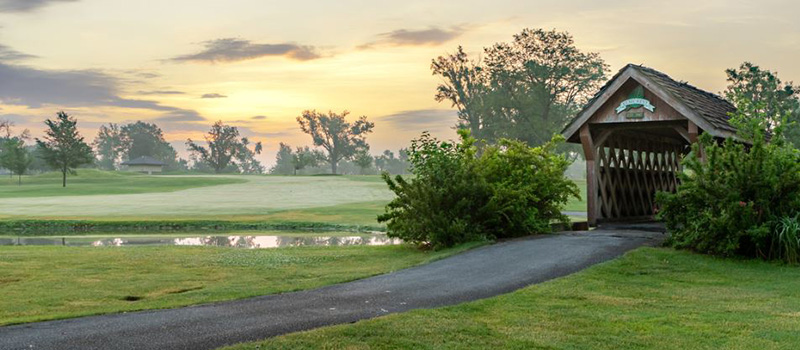
Blake Mann is an assistant superintendent at Elmcrest country Club in Cedar Rapids, Iowa, and a one-year GCSAA member. Photos courtesy of Blake Mann
Hiring an assistant golf course superintendent who comes from a non-turf background isn’t always viewed as an asset. However, non-traditional employees can offer a big advantage. People with experience in areas like environmental science, business, tech, or engineering can bring fresh ideas and new ways of looking at things that can help a course evolve.
My background is in industrial technology, and I’ve found it gives me a solid base for improving equipment efficiency, dialing in systems like irrigation, and tackling problems from a different angle. My education taught me how to think through issues in a more structured, solution-focused way, which comes in handy when things inevitably go wrong on the course.
That solutions-based mindset is especially valuable in day-to-day maintenance, where troubleshooting is a constant necessity. As golf courses continue evolving toward a focus on sustainability and efficiency, these outside-the-box skills can really help move efforts forward. Blending real-world, hands-on experience with a broader knowledge base can lead to some creative solutions, not just for the problems we’re facing today, but also for long-term goals.
Non-traditional professionals can help contribute in ways that set them apart from traditionally trained turf management staff. Individuals with business degrees are skilled at managing budgets, resources and strategic planning. Those skills can help golf courses streamline their operations, save money and reduce waste. Professionals with a focus on environmental science can introduce environmentally sustainable practices, such as water conservation and sustainable turf treatments. That knowledge base is a must when it comes to meeting the growing demand for environmentally conscious operations.

Mann studied industrial technology at Iowa State University before switching to a career in turfgrass.
Furthermore, non-traditional professionals often bring valuable leadership and communication skills that enhance team dynamics and operational success. With backgrounds in management or other industries, these individuals are adept at overseeing maintenance teams, managing complex projects, and communicating effectively with course stakeholders. Their ability to think creatively and problem-solve from new angles fosters innovation and continuous improvement.
As the golf course management industry continues to evolve, the contributions of those with diverse educational backgrounds will be key to shaping its future, offering fresh approaches to both day-to-day challenges and long-term goals using complementary disciplines. So next time you are considering hiring, consider someone from a non-traditional background!
Blake Mann is an assistant superintendent at Elmcrest Country Club in Cedar Rapids, Iowa.